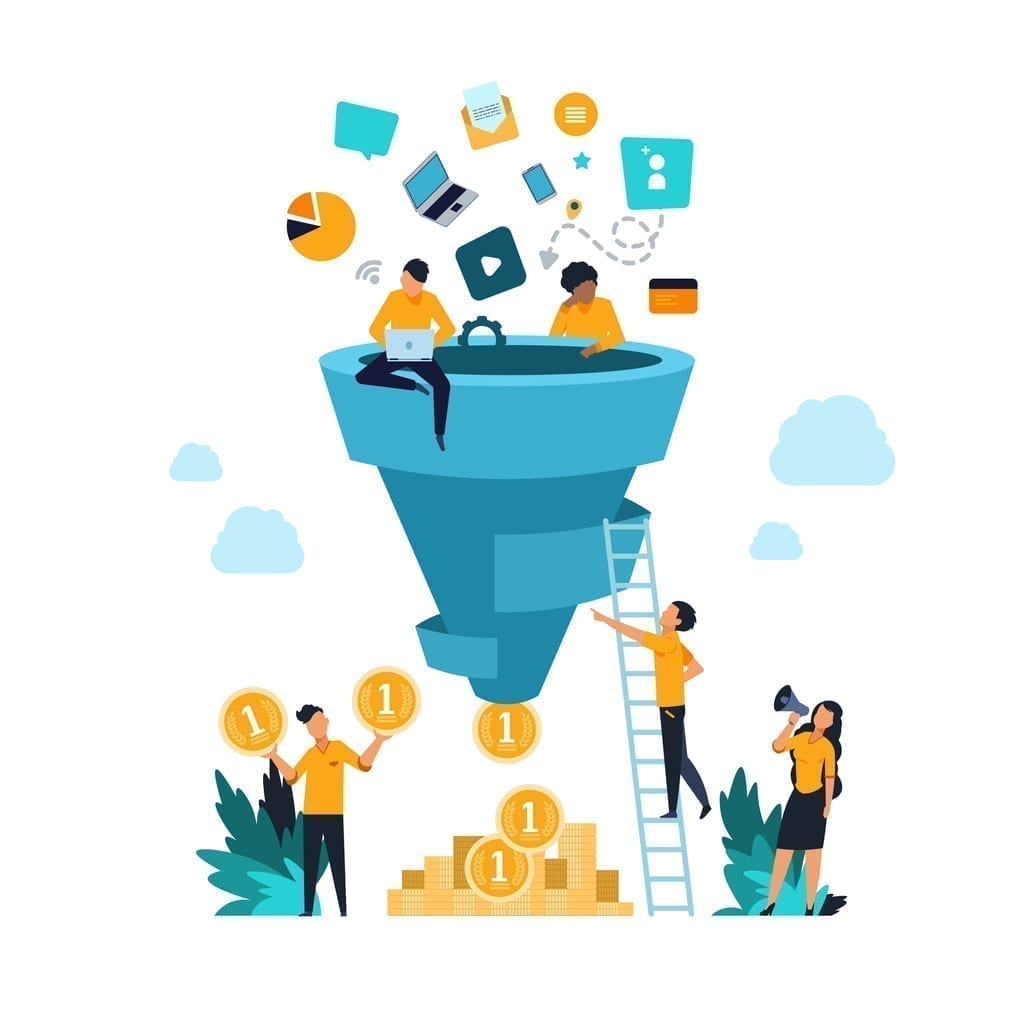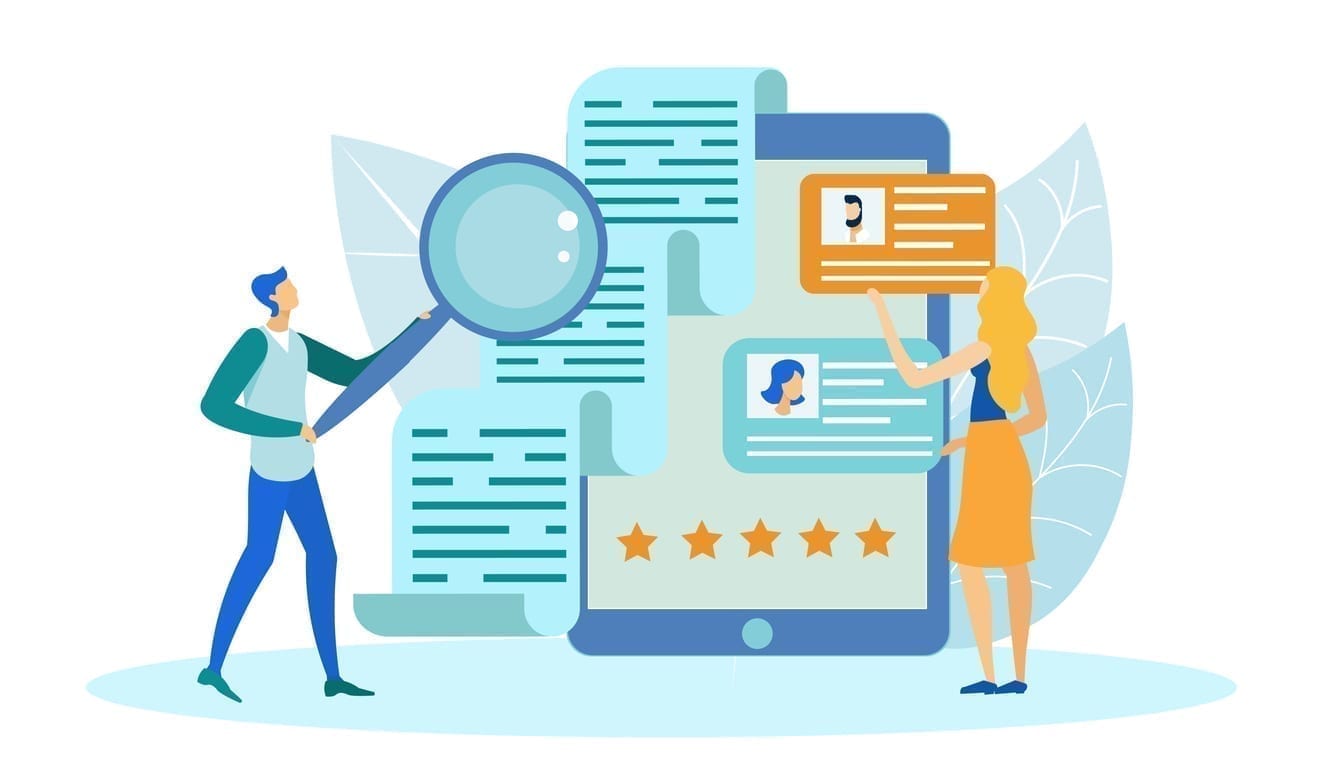7 Reasons You Need a Sales CRM

What Is a Sales CRM?
CRM stands for customer relationship management. There are a number of different sales CRM tools out there that have a variety of different functions. The main premise behind having a CRM tool is to help you manage all your company’s relationships and interactions with customers and potential customers. A CRM is key for lead generation and lead tracking. This helps you save a lot of time doing basic administrative tasks and lets you spend your time on what matters most, your customers.
There are a number of CRMs out there that are useful to people in a variety of industries. However, a sales CRM is going to be most useful to those who offer service-based products and those who operate B2B (or business to business). Oftentimes, keeping track of your customers can be very time-consuming. Did they respond to my email? Who do I need to get back to? What services were they interested in again? These are all questions you may ask yourself often, but with a sales CRM, all that information can be put into one software system to help you keep track.
How Can a Sales CRM Help Me?
Keep Your Contacts in One Place
Ever been to a networking event and been handed dozens of different business cards all in different sizes and styles? Ever end up losing them? Well you can avoid that problem with a sales CRM. You can add all your contacts into your sales CRM so you never have to hold on to business cards for too long. Some CRMs even provide you with the ability to scan business cards directly from your phone and right into your CRM, this way you can be sure you don’t miss out on communicating with that promising lead.
Not only will you be sure not to lose your contacts, but you can also group contacts together based on their companies. Oftentimes with large clients, you find yourself in discussions with multiple stakeholders, which can get confusing. By utilizing a CRM you can keep all interactions with leads from the same company under one umbrella and refer back to your conversations at a later date.

Set Yourself Reminders
Keeping track of everything that goes on in your business is a job in and of itself. It can also become even more time-consuming with regards to new leads for your business. On a particularly busy week, leads can easily fall through the cracks if you forget to respond to them. Within a sales CRM you can set yourself reminders to reply to people and to follow up with them if they haven’t responded to you yet.
Not only can you set yourself reminders to get back to people, but also to organize yourself through your sales process. Have a big pitch meeting coming up? Set yourself a reminder to get all your sales materials together before the meeting so you stay ahead and prepared. Use this tool as a way to remind yourself of all types of tasks and set them as recurring reminders if you do these tasks often.
Schedule Meetings
Link your desired calendar to your sales CRM and schedule meetings seamlessly. By connecting your calendar with your CRM you’ll be able to set up meetings easily without the back and forth that usually takes place to find the right time. Some CRMs may also allow you to create your own meetings link so your leads can schedule meetings with you directly into your calendar.
You can set up various meeting links for different times and different tasks, and also set times before and after the meeting to be blocked off to allow for travel and preparation time. This handy tool helps to automate your meetings so you don’t have to keep on following up with your leads with different times to meet.
Reports Directly in your Sales CRM
As sales CRMs become more and more sophisticated, so too do their reporting systems. You can gain so much about your leads through your sales CRM which can be particularly useful if you need to show it to any higher-ups or stakeholders in your business. You can keep track of how many leads you’ve gained, how many meetings you’ve scheduled, how many deals you’ve closed, and so much more!
The reporting tool in your sales CRM becomes even more useful especially if you’re running ads or a social media campaign. Depending on which CRM you use, your reporting may even be able to tell you which channel your new lead found you on. This is extremely helpful as it gives you insight into which ad funnels are working best and which funnels you may want to de-invest in.

Automate Your Admin Tasks
Most CRMs provide you with the ability to automate certain tasks, saving you time. You can set up your CRM to send you reminders after certain actions or even a chain of reminders after certain actions. Let’s say you finally close a deal, you can automate your CRM to send you reminders to create and send over a contract. Not only can you automate reminders but you can also automate emails.
Some CRMs provide you with the ability to set up email workflows. The first email you send to a prospect is likely very different from your following emails. You may even need to send them emails depending on what they’ve interacted with in your first email. For instance your first email may include information about a few different services but your prospect only clicks on a link about one service in particular. You can automate your emails to send a follow up email in a few days about that specific service. This way you can appeal to your audience all the way through the funnel with engaging emails.
Internal Communications
If you’re working in a large sales team and multiple people need access to your contacts a sales CRM helps to keep everyone updated. Not only will all your contacts be available to your team but also any correspondence you’ve had with them. So if a person on your team needs to read the first email your contact sent you, everything will be securely saved in your CRM.
This not only helps your team but also yourself. If you are out of office for a while and come back to learn that a teammate has helped you with a lead, you can take a look through every single piece of correspondence between them to keep you up-to-date with what is going on.

Connect your Contact Forms
Connecting the contact forms on your website to your sales CRM is helpful in keeping track of your contact information. Whenever a lead fills out a contact on your website, they can automatically be added to your CRM and you can always refer back to them whenever you need to. By adding them automatically, it saves you time and also allows you to remember to get back to that lead at the best time for you.
Which CRM Is Best for My Business?
There are a number of different CRMs out there but our team recommends Hubspot. Not only does our team utilize Hubspot but we’ve implemented Hubspot for our clients. Speak to our Hubspot Sales Certified team about how a CRM can help your business!
